‘Young Filipinos more aware of history than a lot of the older folks’
By Cristina DC Pastor; TF PhotoPoet Luis Francia, who came to New York more than 30 years ago in search of his beginning as a writer, talks about his early Bohemian life and how his struggle was unlike that of many Filipino immigrants.
TF: Did you leave because of martial law?
LF: No, I just wanted to get away and be on my own, to live the Bohemian life. But shortly after I left nagka-martial law. I left not because of martial law, but I stayed because of martial law.
TF: Did you come as a tourist?
LF: No, my mom is an American citizen. Half American, half Filipino siya. I had an American passport.
TF: Why New York?
LF: Because my brother was here. And New York was always a place that attracted me and many Filipinos. It’s a great city. Also, I wanted to be a writer.
TF: What was your first job?
LF: I got a job almost immediately, and in those days it was easy. I got a job working at Merrill Lynch as securities trainee. I saw this ad in The New York Times, security guard. I said, why not. I went to the human resources office. The guy looked at me and said, have you ever used a gun? I said no. He said, I don’t think this is for you. But he said we have openings for management trainees. I took the test and passed. I lasted about two months. I found this proofreading job, which is more my line — publishing. I quit the other job, let my hair grow, kept my tie and suit.
TF: How did you get to meet Jose Garcia Villa?
LF: I met him because of my older brother, Henry. It’s hard to say we became friends because he wasn’t easy to be friends with. He was older, but I did take his workshop in poetry. I studied with Villa at The New School. If you survived his workshops – they were tough – you could take his workshop in his apartment at the West Village. He would serve this really potent martini, malakas siya uminom eh. Most of us would drink along with him. Good discussions fueled by potent martini.
He hated French food, he thought it’s pretentious. Kung may parties kami, don’t bring cheese. He loved Chinese food. He thought Italian food was ordinary. He had his set ways. He would tell you whom to read, to avoid fiction (as) it will destroy your poetic sensibility. Most of us would more or less follow, but we did not necessarily agree with everything.
TF: You’ve always been associated with the Village Voice. How long did you stay there?
LF: I started working at the Voice around 1977. And then I was fired. Then the old order was kicked out. Nakapasok uli ako. From 1979 to 2005, I was copy editor and writer. By then, lumipat na ako sa Soho. Mura ang rent ko doon. Hundred dollars. Rent-controlled. I could afford a part-time job, I didn’t need a 9-5 job.
TF: How did you become a teacher?
LF: My teaching began and overlapped with the Voice. In 1995 nag-umpisa ako magturo. Part-time naman trabaho ko sa Voice so I could teach part-time. It’s perfect, two part-time jobs equals one full-time.
TF: More than 30 years in New York, how would you characterize the Filipino community?
LF: I find Pinoys on the West Coast more aware, more working class. California, Hawaii, Alaska was where Filipino immigrants went after 1906 because that’s where the farms were. So there’s a history of labor militancy. There’s more a sense of history of the Philippine struggle on the West Coast that we don’t have here. People in New York are more middle class. Post ’65, we had professionals, nurses, doctors.
TF: What about in terms of being organized, being a social community.
LF: I think people get turned off by the peculiar Filipino habit of everyone wanting to be the leader. It’s ridiculous. I hate that kind of pataasan ng ihi. I have no time for that so I tend not to join any organization. I was on the board of the Asian American Writers’ Workshop. I thought I could do more for Filipino American writers there than the community at large, which is a rather abstract notion.
TF: Do you think today’s reason for immigrating is more economic? I don’t hear of Filipinos coming here because they were looking to have a Bohemian life.
LF: I was fortunate because I didn’t have to send money back home. I wasn’t in that position. My family was middle class. There was no need for me to slave and support (family). Even then, people were doing that. But now because of the global recession, the population growth in the Philippines, the demands, etc. there’s probably a smaller percentage of Pinoys who travel here just to discover new horizons. It’s really for economic reasons or for education. I just wanted to fuck around.
TF: The new-generation Filipino Americans. What do you think of them?
LF: The ones I’ve met seem to be motivated about learning about their parents’ country. And they seem to be more aware of the history of the Philippines than a lot of the older folks. They’re curious and they want to find out. They kind of romanticize where their parents come from. It’s their reaction to being people of color here. They know it’s not easy, so they look back, and it’s a kind of tabula rasa where they inscribe their own feelings and ideals. It’s like looking at the homeland and what it means. So it becomes a kind of refuge against the realities of living in a 21st century America. So there is a tendency to romanticize.
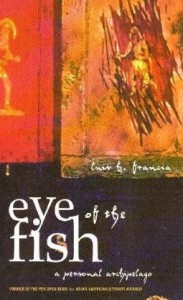
Luis Francia taught Asian American Literature at Sarah Lawrence College for seven years. He is on the faculty of NYU teaching Intermediate Tagalog, and Philippine-American Literature at Hunter College. He has written several books of poetry and one on Philippine history, including the autobiographical “Eye of the Fish: A Personal Archipelago” and “A History of the Philippines: From Indios Bravos to Filipinos.” He edited a number of Asian American literary anthologies. He lives in Jackson Heights, Queens with his Japanese wife Midori.
Cristina DC Pastor is the founding editor of The FilAm.

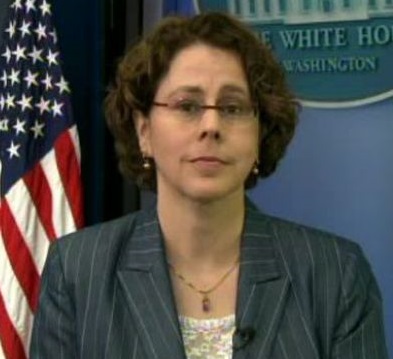

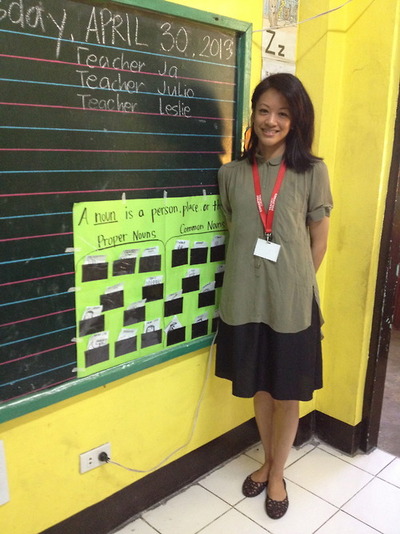
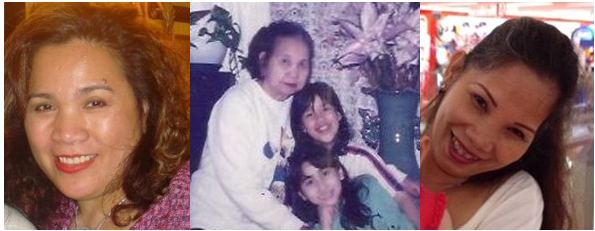
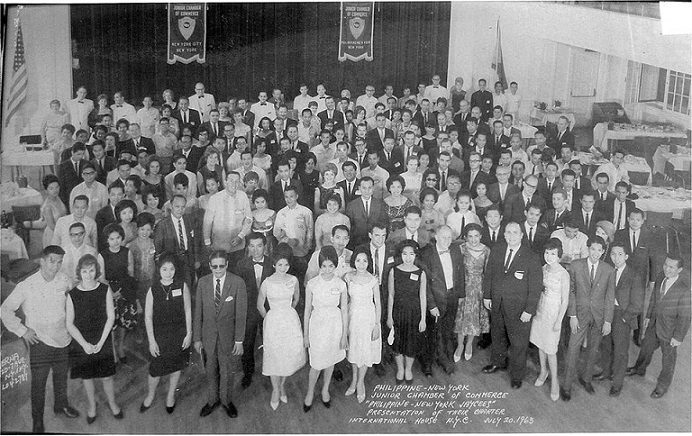
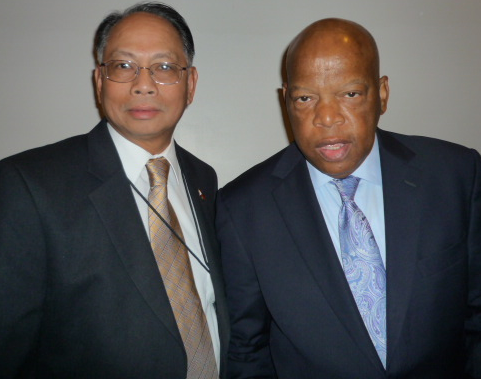


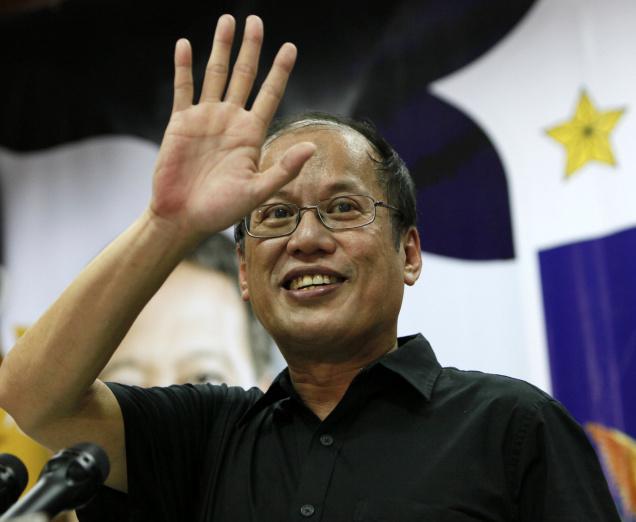
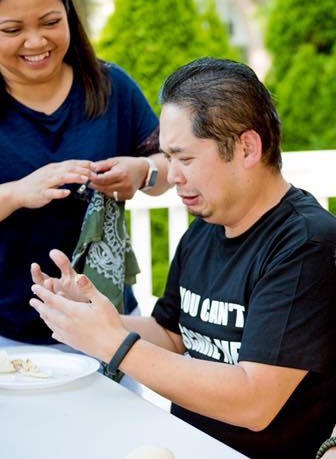
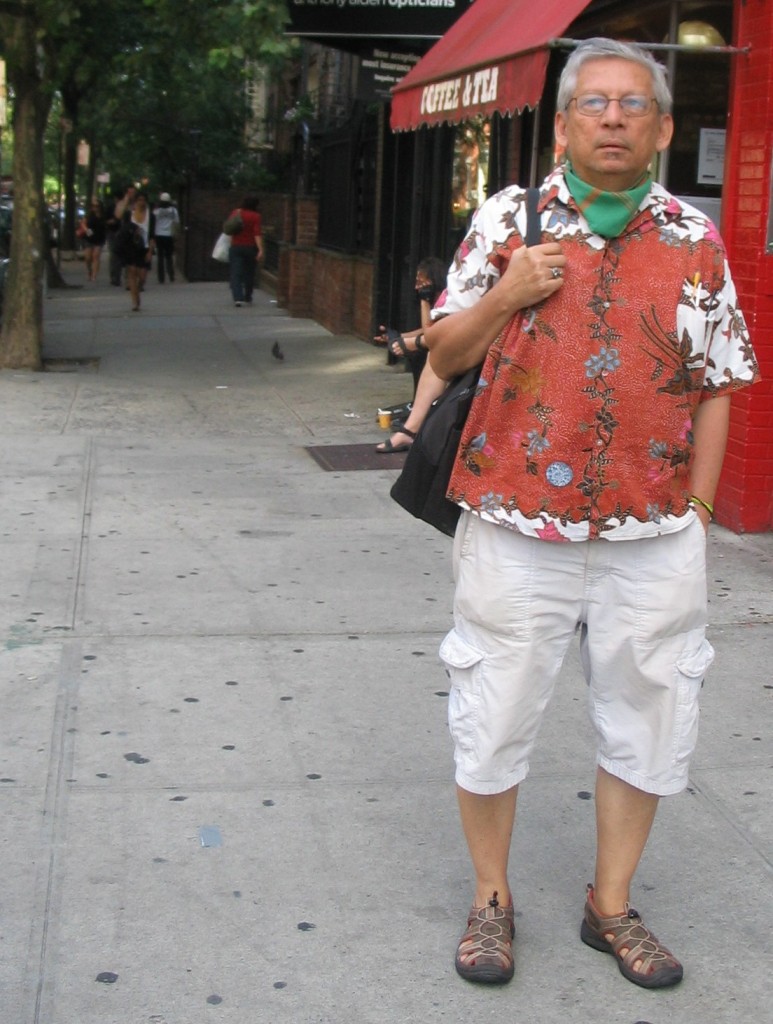
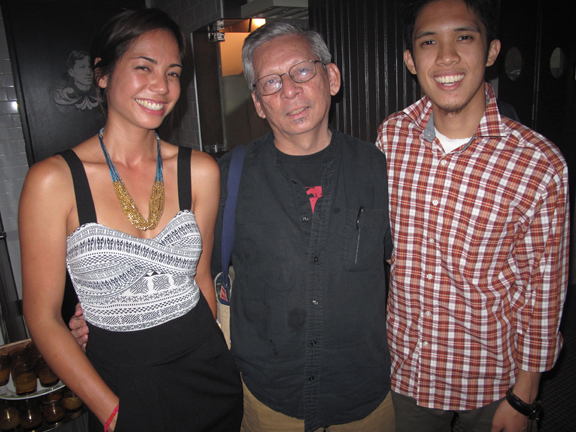

Great Article! I especially enjoyed the part where Luis exposed the subtleties of the famous poet. I as well dislike french cuisine and because I believe that it takes a conscious effort to like french food, therefore i think people in french restaurants who do not have french blood are pretentious (giggling like a little girl out loud).
I agree with Mr. Francia’s observation regarding the young generation. My conversations with my mother usually involves her accusing me of over-romanticizing the struggles we’ve experience in the Philippines. Which then leads to her reminder that Pilipinos in the Philippines would eat a thousand balot and two thousand durian all together in one sitting, just to be where I am right now. I’m note sure if Luis implied that romantization is a flawed tendency (I’m pretty sure my mother does), but I have to respectfully disagree with that implication. The conscious decision of the young Pilipino to break free from the tsunami-like wave of the pursuit of the American dream is sexy, in my opinion at least. To have the understanding and awareness that there is something amiss about a Pilipino dreaming American ought to be appreciated. The ones who decide to take it further by taking a more pro-active role in the process of progress should be commended instead of discouraged. I often have conversations of older Pilipinos who express their disappointment in my generation’s lack of connection with our culture and identity. I personally think it’s because the parents of my generation have done an insufficient job romanticizing the image of the Pilipino. In fact, I can think of two of my friends who admitted that their parents have intentionally disconnected them from their culture and language because their parents did not want them to stand out with a “fobbish” accent in the kindergarden classroom. It is my most sincere opinion that Pilipinos ought to romanticize the Pilipino.
[…] Luis H. Francia is a poet, journalist, nonfiction writer, and professor. His semiautobiographical account of growing up in the Philippines, “Eye of the Fish: A Personal Archipelago,” won both the 2002 PEN Open Book and the 2002 Asian American Writers literary awards. His poetry books include “The Beauty of Ghosts,” “The Arctic Archipelago” and “Museum of Absences.” He is the author of “Memories of Overdevelopment,” a collection of essays, and “A History of the Philippines: From Indios Bravos to Filipinos.” He edited “Brown River, White Ocean: An Anthology of Twentieth Century Philippine Literature in English” and co-edited “Flippin’’: Filipinos on America,” and “Vestiges of War: The Philippine-American War and the Aftermath of an Imperial Dream, 1899-1999.” He is included in the Library of America’s Four Centuries of Immigrant Writing, and the poetry anthology “Language for a New Century.” […]